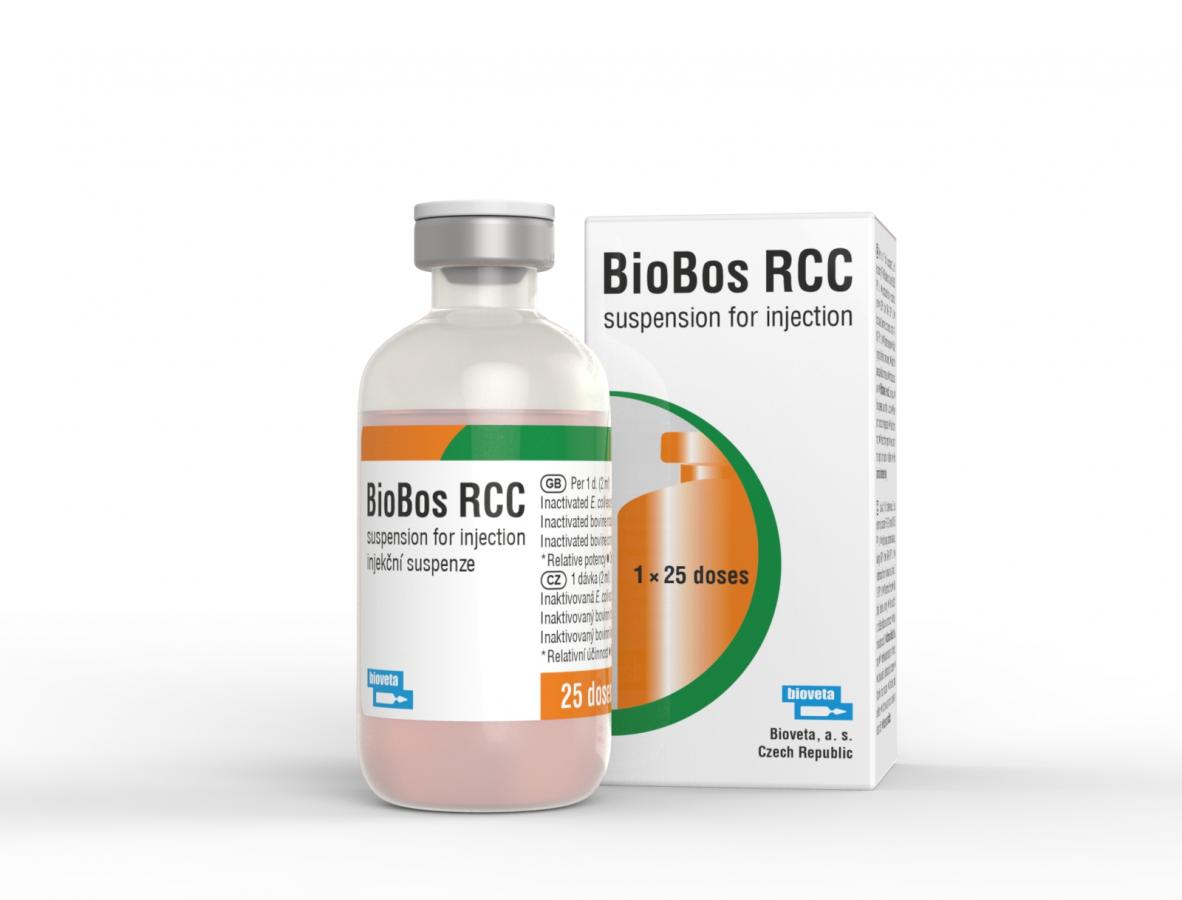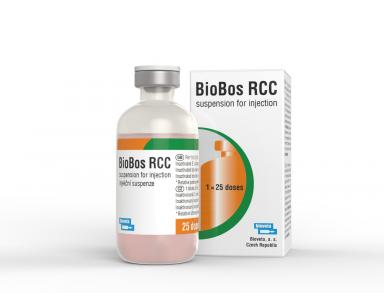BioBos RCC suspension for injection
Homepage Products Veterinary products BioBos RCC suspension for injection
Inactivated vaccine against neonatal diarrhea of calves.
| type of preparative: | Vaccines |
|---|---|
| target species animals: | Cattle |
COMPOSITION
Inactivated E. coli expressing F5 (K99) adhesin, strain O8:K35 RP ≥ 1*
Inactivated bovine rotavirus, serotype G6P1, strain TM-91 RP ≥ 1*
Inactivated bovine coronavirus, strain C-197 RP ≥ 1*
* Relative potency (RP): level of antibodies in sera of vaccinated guinea pigs as determined by ELISA in comparison with the reference serum obtained after vaccination of guinea pigs with a vaccine batch that has successfully passed the challenge test in the target animals.
Adjuvants:
Aluminium hydroxide 6 mg
Quillaja saponin (Quil A) ≤ 0.4 mg
TARGET SPECIES
Cattle (pregnant heifers and cows).
INDICATION
Active immunisation of pregnant heifers and cows in order to stimulate the development of antibodies against bovine rotavirus, bovine coronavirus and E. coli expressing F5 (K99) adhesin and to increase the level of passive immunity of calves against neonatal diarrhoea caused by bovine rotavirus, bovine coronavirus and E. coli expressing F5 (K99) adhesin.
In calves fed with colostrum and milk from vaccinated cows for the first week of life, laboratory studies conducted with heterologous challenge strain (a G6 BRV strain, a BCV strain, and a K99 E. coli strain) have demonstrated that these antibodies:
- prevent neonatal diarrhoea caused by bovine rotavirus and E. coli expressing F5 (K99) adhesin,
- reduce the incidence and severity of neonatal diarrhoea caused by bovine coronavirus,
- reduce faecal shedding of virus in calves infected with bovine rotavirus and bovine coronavirus.
Onset of immunity:
In calves fed with colostrum from vaccinated heifers or cows passive immunity commences with colostrum feeding and is dependent on calves receiving sufficient colostrum after birth.
Duration of immunity:
Calves fed with colostrum and milk from vaccinated dams for the first week of life are protected against bovine rotavirus for 7 days and against bovine coronavirus for 14 days.
The duration of immunity against infections caused by E. coli expressing F5 (K99) adhesin was not studied since such disease is usually observed in calves less than 3 days of age and susceptibility to enterotoxigenic E.coli is age dependent.
DOSAGE, APPLICATION AND VACCINATION SCHEME
One dose of 2 ml by intramuscular injection.
A single injection should be given during each pregnancy between 12 and 3 weeks before the expected calving.
Colostrum feeding:
Calves are born without protection from antibodies. Immunity against calf diarrhoea is provided by rapid uptake of colostral antibodies from vaccinated dams. The first colostrum intake should take place as soon as possible, ideally within 2 hours and at most 6 hours after birth. In dairy calves, it should represent a volume equivalent to approximately 10% of the body weight, followed by a similar volume within 12 hours. Beef calves should stand and suckle within 2 hours of calving.
STORAGE
Keep out of the sight and reach of children.
Store and transport refrigerated (2-8°C).
Protect from frost.
Protect from light.
Withdrawal period
Zero days.
SHELF LIFE
Shelf-life of the veterinary medicinal product as packaged for sale: 2 years.
Shelf-life after first opening the immediate packaging: 10 hours.
PACKAGE
2 ml, 10 ml, 50 ml, 100 ml.
Not all pack sizes may be marketed.










